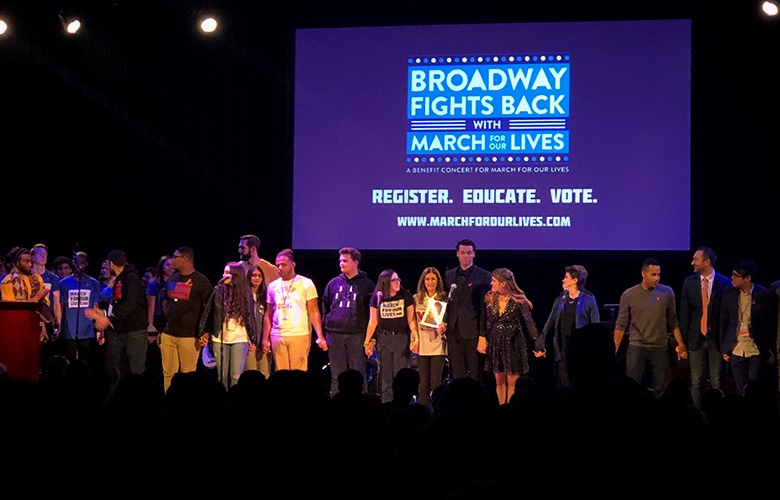
Artists are the gatekeepers of truth.
Use your voice and actions to create and/or participate in positive change.
Vote.
These were among the messages conveyed by social activists, students, musicians and Broadway artists at Broadway Fights Back, a benefit concert to support March for Our Lives’s mission to raise awareness and put a stop to the senseless gun violence that plagues our country daily.
There were metal detectors when you entered the town hall: a striking dose of reality that this is the world we live in now, one where we have an inherent fear of potential danger at public events.
That initial feeling incited by those detectors echoed as I took my seat for a benefit concert that I had only heard about a day prior.
March For Our Lives, a widespread group that emulates hope and courage for the future, arose out of senseless tragedy when a gunman killed seventeen people at Marjory Stoneman Douglas High School on February 14th, 2018. This event sparked a unique response effort, leading to a Washington D.C. rally that attracted over 800,000 peaceful protesters. Since the rally on March 24th, the group has expanded its presence nationally and frequently travels the country empowering and assisting young people to make a change in their communities. On their most recent trip, the group was able to register 50,000 young people to vote who will now be eligible to do so in the upcoming midterm election. The midterm election, which will take place on Tuesday, November 6th, was a major theme of the evening as it will be a determining factor of future gun legislation in the United States.
The evening consisted of speakers, some as young as sixteen (though you would never know it by the eloquence, maturity and wisdom with which they spoke) as well as people who had been directly influenced by gun violence.
One of the most moving speakers of the night was Linda Schulman, mother of Scott Beigel, a teacher and coach at Marjory Stoneman Douglas High School who was killed while protecting his students. The evening of the benefit was coincidentally, or perhaps not, on what would have been his 36th birthday. His mother read an emotionally powerful birthday card she would have sent him and urged audience members to get to the polls to vote for “reasonable gun regulation.”
What role does theatre play in this? How can the arts impact March for Our Lives aside from monetary contributions? How can a song, scene, or dance influence politics or state an opinion on gun legislation.
In the words of Oscar Wilde:
“I regard the theatre as the greatest of all art forms, the most immediate way in which a human being can share with another the sense of what it is to be a human being.”
By coming together for one evening, Broadway performers like Betsey Wolfe (The Last Five Years), Ethan Slater (Spongebob Squarepants), Barrett Wilbert Weed (Heathers, Mean Girls), George Salazar (Be More Chill) and American composer Jason Robert Brown, to name a few, bared their souls through songs about change and connected with those in the audience just as they would have if they were performing in their respective musicals.
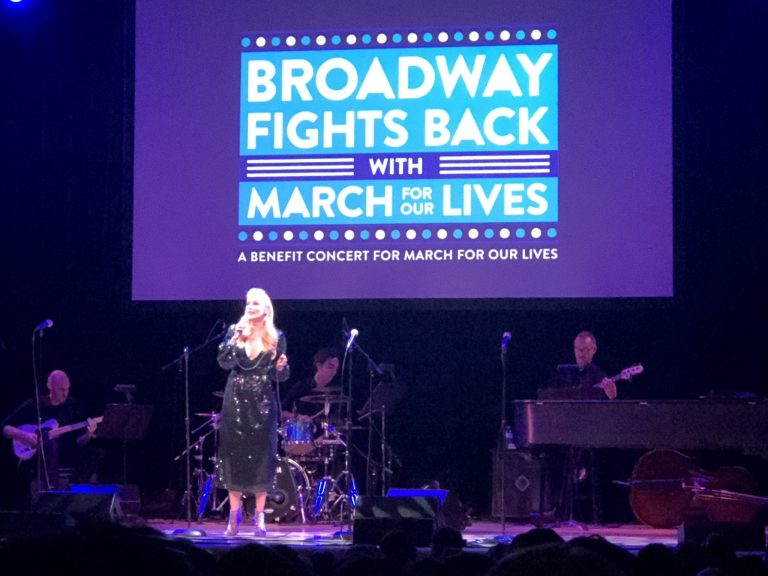
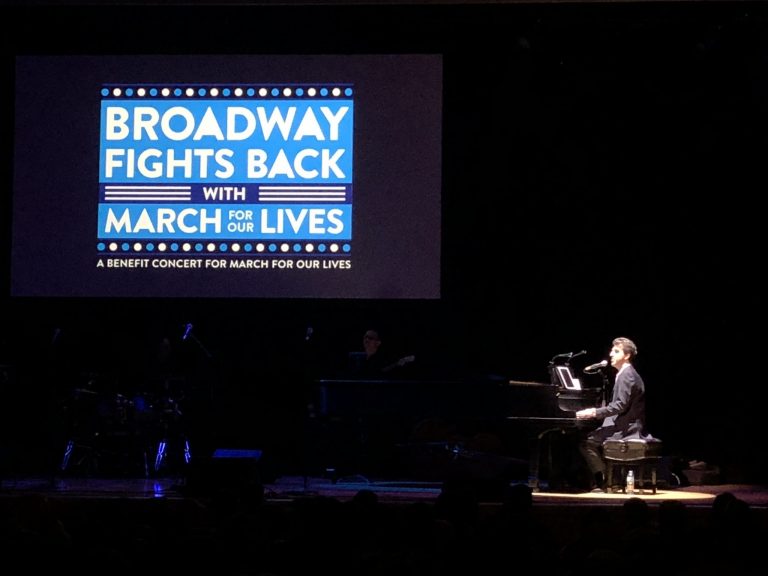
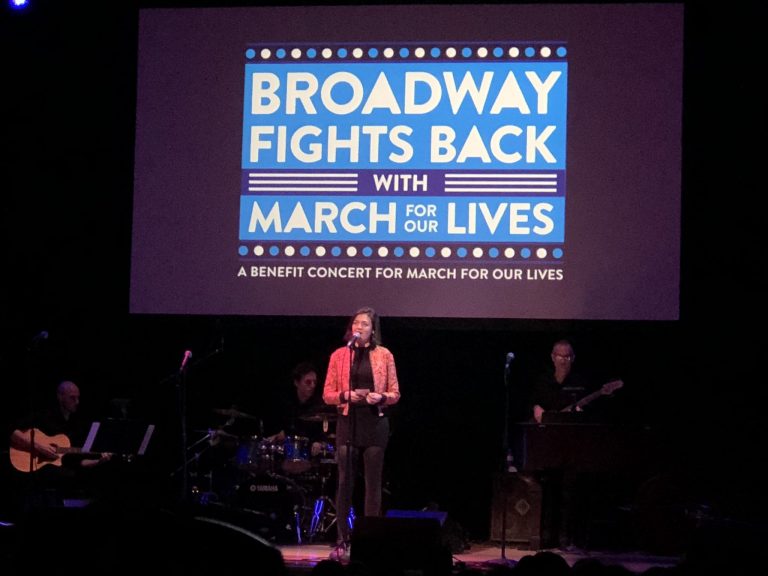
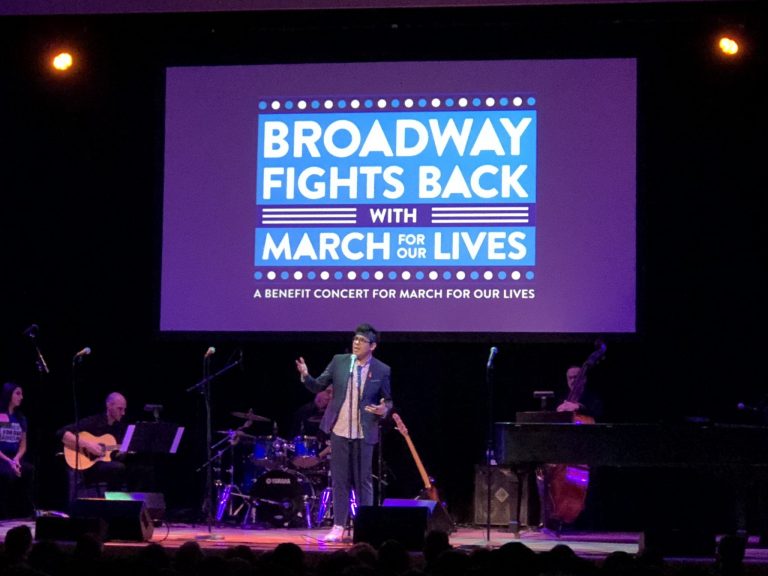
I have always believed that theatre makes you feel, think and act. These feelings, thoughts and actions may differ among people, but everyone in the room at this concert understood the dire, immediate necessity to act or say something to help spread this cause’s message. This is saying something because often times in situations like these it is easy to feel powerless. It is easy to fall into the trap of identifying yourself as one small voice among so many others and lacking the power or influence to start a movement like this one. Sometimes it is easy to feel like even our most voracious efforts do not yield any results. In this case, that could not be further from the truth.
Since the group’s inception and speaking tours, significant legal action around gun legislation has taken place and in some states very successfully. While there is still much work to be done and many issues to work through, that is something. This is all because a group of students decided that what happened at their school was not okay, realized something had to be done about it and did it.
Words cannot adequately describe this event that happened on a typical Monday night at a town hall. However, a video that was premiered at the concert entitled “Enough”, truly encapsulates its purpose. The video represents the tolling emotions of gun violence through the eyes and movements of innocent, young children who have to bear witness to its shocking realities.

As one of the young speakers recited so appropriately in her speech, “this is not a moment, it’s a movement”. There is no doubt that this Lin-Manuel Miranda-coined phrase has and will continue to resonate with the theater community on this important issue.
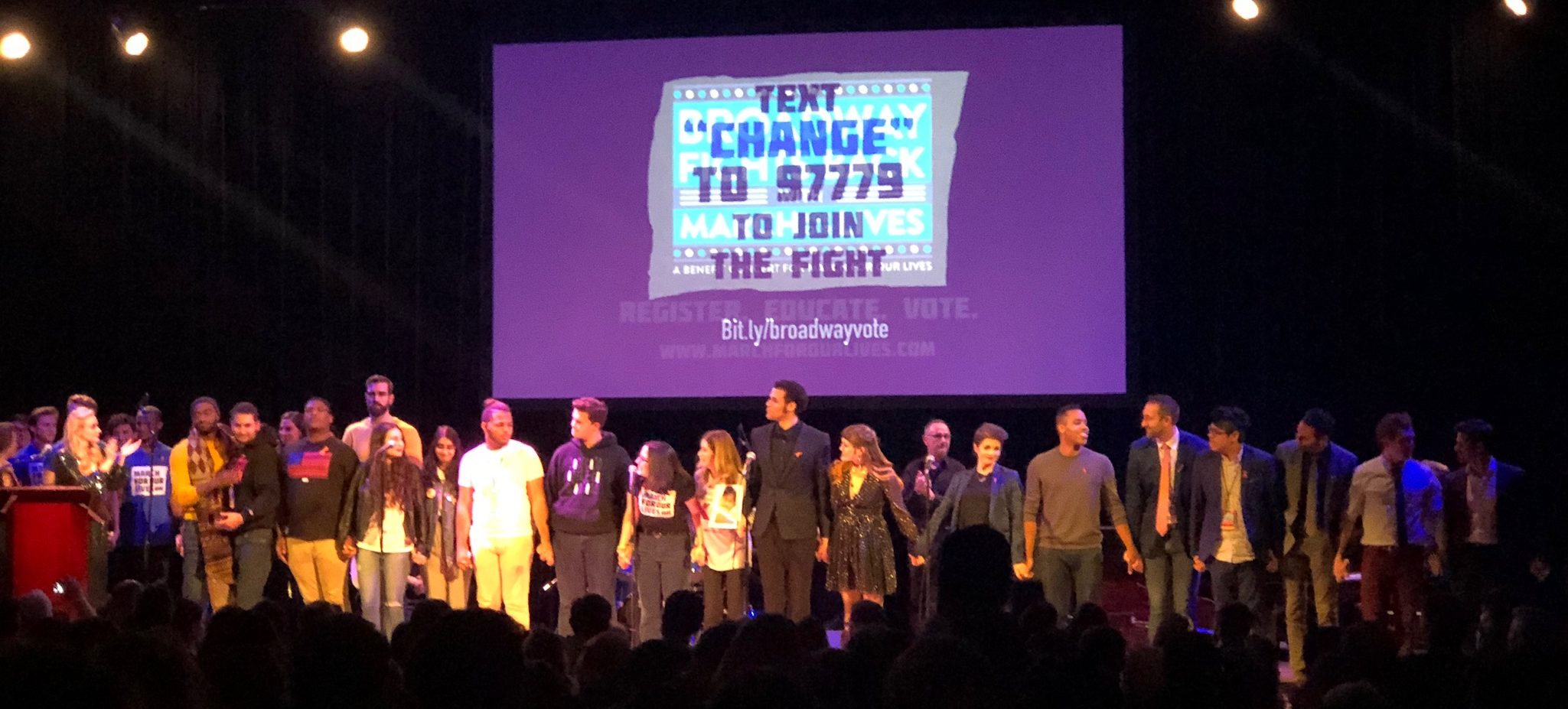
Angels in America: The Great Work Begins
A Tale Of Two Parts: Broadway’s Newest Model
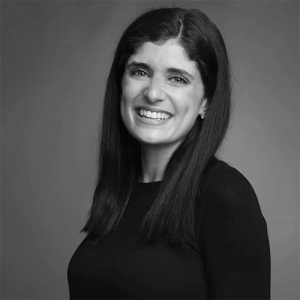

Mena Buscetto’s 18+ of theatrical experience have enhanced her love of storytelling and expression through the written word. Mena currently lives in Manhattan and holds a B.A. in English from Marist College and a M.A.T. from Sacred Heart University. She also attended the Columbia Publishing Course in 2017 where she learned about all aspects of the publishing industry and strengthened her own writing and editing skills. Throughout her life, Mena has been fortunate enough to participate in all aspects of theater, including performance, box office management house management, props mastering, and directing. Mena has most recently performed in "How the Other Half Loves", "Cabaret", "A Chorus Line" and "Godspell". Mena has also been dancing since the age of two and has studied ballet, jazz, tap, musical theatre and lyrical dance. In her free time, she enjoys seeing Broadway shows and taking classes at Broadway Dance Center. Through TheatreArtLife, Mena hopes to contribute to a community of creative professionals who share her passion for the arts.
Read Full Profile© 2021 TheatreArtLife. All rights reserved.

Thank you so much for reading, but you have now reached your free article limit for this month.
Our contributors are currently writing more articles for you to enjoy.
To keep reading, all you have to do is become a subscriber and then you can read unlimited articles anytime.
Your investment will help us continue to ignite connections across the globe in live entertainment and build this community for industry professionals.